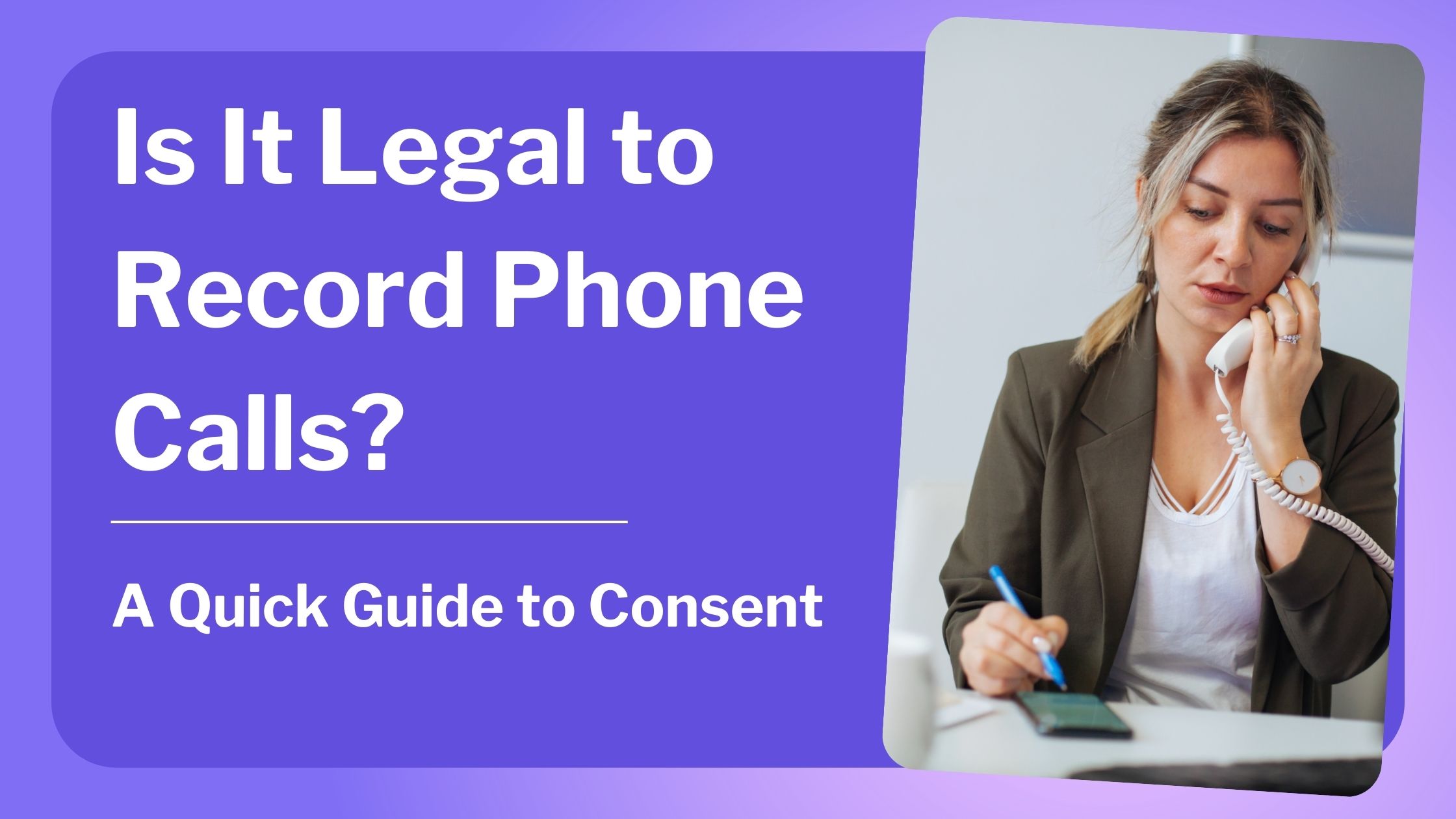
Published 09/07/25
Don’t Guess—Know the Rules
Recording a call can feel like common sense. You want clarity. You want proof. You want to protect yourself.
But here’s the thing: depending on where you live, what feels reasonable may not be legal. And no one wants a useful tool to turn into an accidental violation.
This post clears up the confusion—so you’ll know exactly when recording a call is safe, smart, and above-board.
One-Party Consent vs. Two-Party Consent: The Basics
The U.S. breaks down into two main categories when it comes to call recording laws:
One-Party Consent States
Only one person in the conversation needs to know it’s being recorded. That person can be you. This means you don’t need to tell the other caller—it’s automatically legal.Two-Party (or All-Party) Consent States
Everyone in the conversation must be informed and agree to recording. If you don’t tell them, you could be breaking the law.
Which States Require Two-Party Consent?
Currently, 12 states require all-party consent. These include:
California, Florida, Illinois, Maryland, Massachusetts, Montana, Nevada, New Hampshire, Oregon, Pennsylvania, Washington, and Delaware.
If you live in or call into one of these states, play it safe: get consent before recording.
What About International Calls?
If you’re calling outside the U.S., laws vary widely:
In the UK, recording for personal use is allowed, but sharing requires consent.
In Canada, one-party consent applies.
In the EU, GDPR adds stricter conditions—like informing the other party why you’re recording.
Rule of thumb: When in doubt, disclose.
Why Consent Isn’t Just Legal—It’s Practical
Even in one-party states, telling someone you’re recording can help:
It sets boundaries and prevents accusations later.
It often calms harassment—people behave differently when they know they’re being recorded.
It builds trust when recording for work or agreements.
Transparency isn’t weakness—it’s protection.
How iCaughtYou Helps You Record Responsibly
iCaughtYou makes call recording simple, but also mindful of consent rules. Features like:
Easy one-tap recording
Secure storage so your files stay private
Options to label recordings with consent notes
You’re not just recording—you’re doing it responsibly.
When Recording Is the Right Move
Some situations where recording can protect you:
Ongoing phone harassment
Important agreements with service providers
Disputes where facts may later be challenged
Personal reminders (details, numbers, instructions)
Just remember—check the rules first, then hit record.
Bottom Line: Stay Legal, Stay Smart
Recording calls is powerful. But with power comes responsibility. Understanding consent laws makes the difference between peace of mind and unnecessary risk.
With iCaughtYou, you can record calls confidently—because you know both the rules and the tools.
Take the Safe Approach to Recording
Be smart, not sorry. Start recording with iCaughtYou today
Start recording with iCaughtYou today
Further Reading
State Recording Laws Explained – Justia
How to Record a Phone Call the Right Way – iCaughtYou Blog